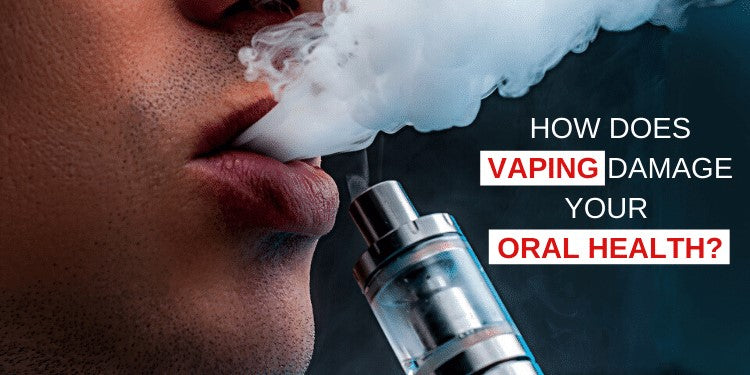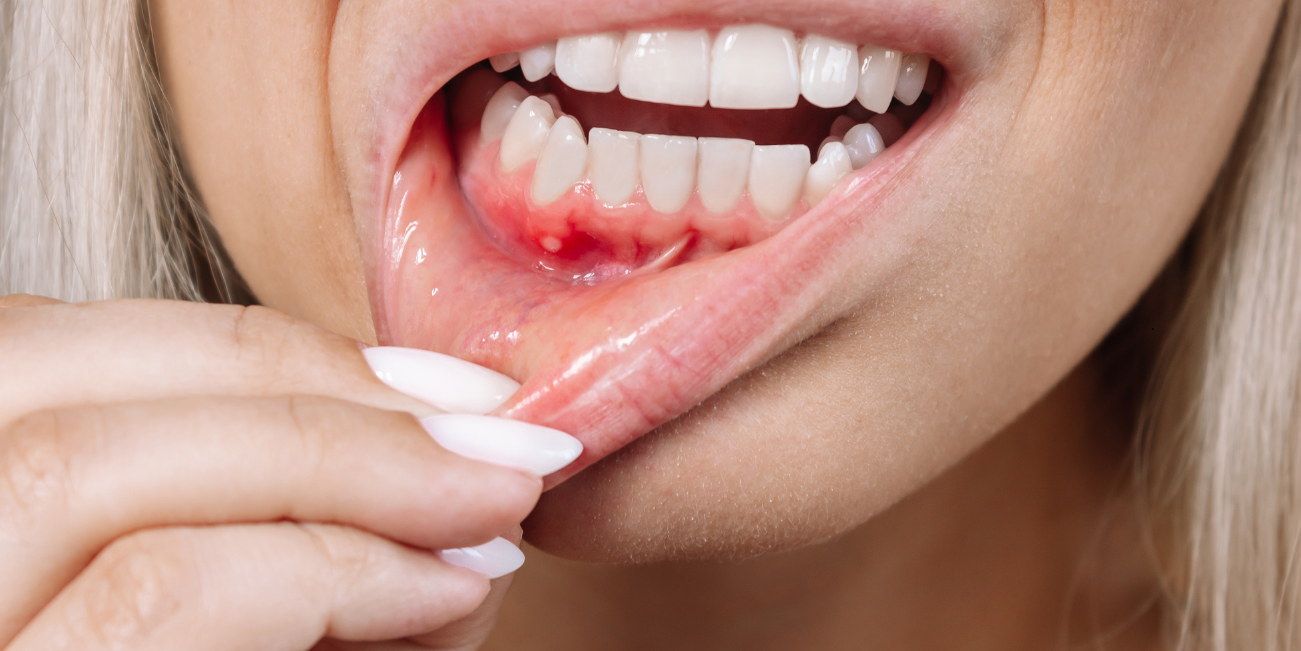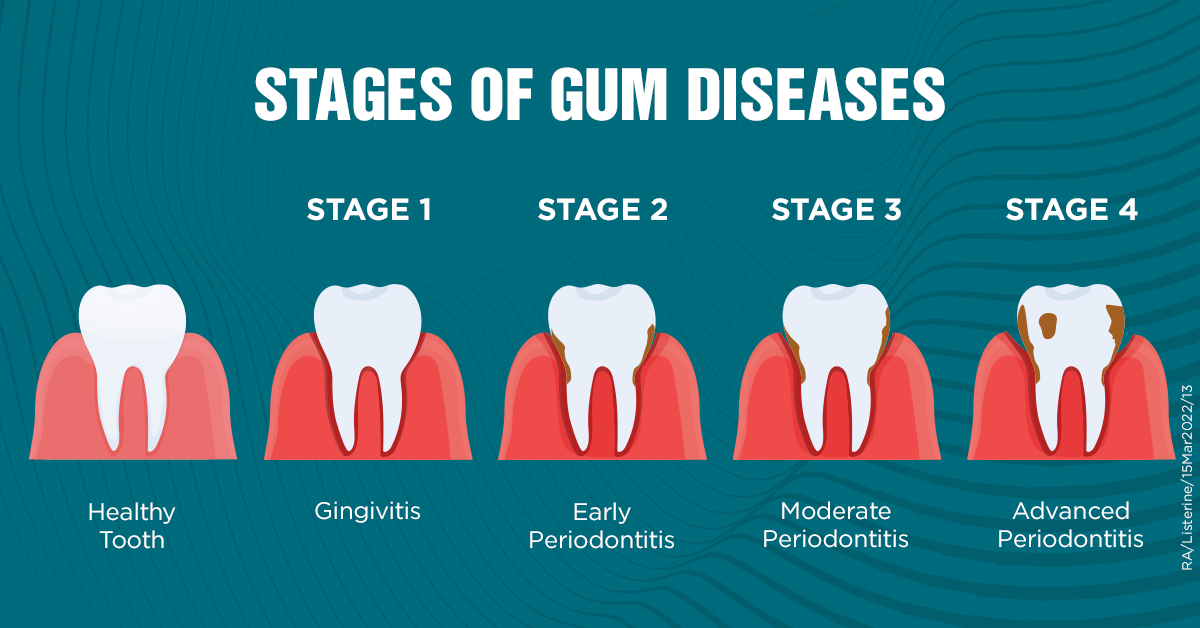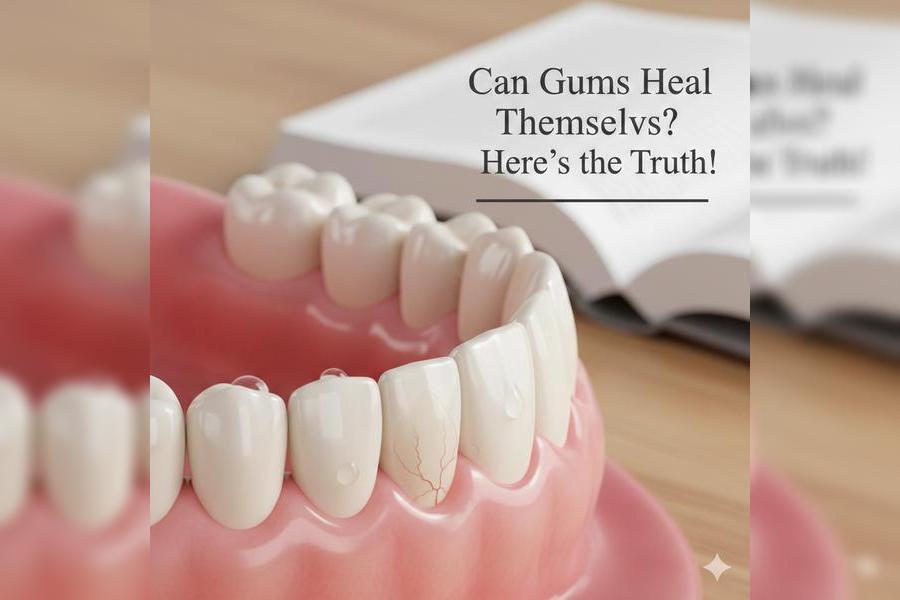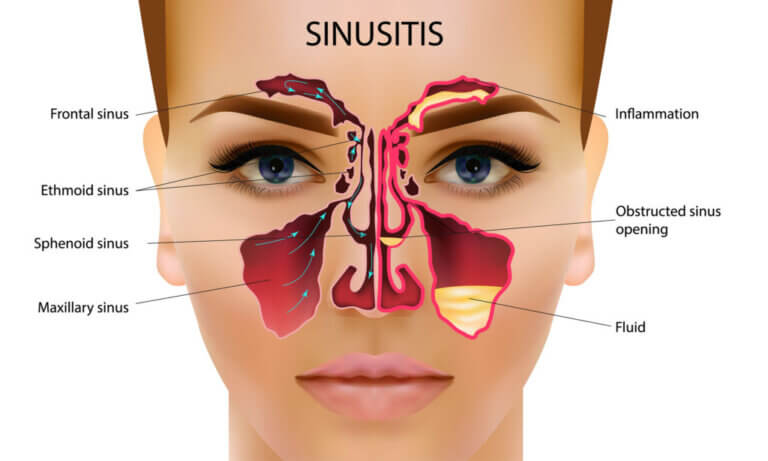Vaping is everywhere. What started as a "safer" alternative to smoking has now become a lifestyle staple for many people, especially young adults. But with this shift comes a big question that deserves your full attention: Can vaping cause gingivitis? If you vape and you care about your oral health (and you should), it’s time to look at what science says, what dentists are finding, and what your gums might be screaming at you.
Let’s break down exactly how vaping impacts your gums, what warning signs to watch out for, and what you can do to reverse the damage naturally.
Spoiler alert: Yes, vaping can lead to gingivitis, and if left untreated, it can progress into more serious gum disease.
What Is Gingivitis?
Let’s start at the roots.
Gingivitis is the earliest form of gum disease. It involves inflammation of the gums caused primarily by plaque buildup. If you notice your gums bleeding when you brush, looking red or swollen, or if your breath has been less than fresh lately, gingivitis could be to blame.
Unlike advanced gum disease (periodontitis), gingivitis is reversible, but only if you act early.
What’s Inside a Vape and Why It Matters to Your Mouth?
Let’s break it down. One single vape juice, which is also referred to as e-liquid or e-juice, is a concoction of substances that will not appear harmful at a glance, but your gums will disagree. What you inhale is quite important to your oral health.

The Usual Suspects in Vape Juice
● Nicotine: Nicotine is still a vasoconstrictor even when consumed in less quantities than it is in cigarette form. This will result in low blood supply to your gums hence lack of oxygen and other nutrients in them.
● Propylene Glycol (PG): It is a man made chemical that produces the effect of the smoke. However PG is also an ingredient that is attracted to moisture and dries your oral tissues leaving your gums exposed.
● Vegetable Glycerin (VG): A liquid with a sweeter taste and more viscous than PG, and is regularly used in conjunction with it. VG has the capability of coating the teeth and the gums which changes the bacterial environment in your mouth.
● Artificial Flavorings: Cotton candy, bubble gum or mint blast, except that they are delicious but usually have some sort of chemical ingredient in it that will irritate the gum tissues or cause plaque build up.
How These Ingredients Impact Gums
Every smoked puff delivers a swig of these chemicals directly into your mouth causing direct contact with your soft tissues. With repetition, these drying and inflammatory agents can:
- Disrupt your oral microbiome
- Increase plaque buildup
- Cause microabrasions in gum tissue
- Trigger immune responses that lead to inflammation
It’s Not Just What You Inhale, It’s What You Exhale Too
The vapor that you breathe out does not dissipate into nowhere, it hangs near your mouth, lips, and gums. This constant exposure forms an unfavorable habitat for your gums. And when your brushing/flossing schedule is not on point, you are literally opening the doors to allow gingivitis to reside there a long time.
In short, the question - can vaping cause gingivitis becomes a lot less hypothetical when you consider what’s actually in a vape, and what it does to your mouth, every single time you use it.
Vaping And Saliva: The Dry Mouth Dilemma
Saliva plays an essential role in your oral ecosystem. It helps wash away food particles, neutralizes acids, and keeps bacterial populations in check. Vaping, especially with high-propylene glycol liquids - leads to dry mouth (xerostomia), removing this vital layer of protection.
Dry mouth = higher bacterial activity = inflamed, infected gums.
Nicotine’s Silent Sabotage: Blood Flow and Gums
You might think nicotine only impacts your brain’s dopamine system, but your gums are also caught in the crossfire - silently and steadily.
What Nicotine Really Does to Gum Circulation
Nicotine is a vasoconstrictor, which means it narrows the blood vessels, reducing the blood flow to tissues in your mouth. This might not seem like a big deal until you realize that healthy gums need a steady stream of blood to stay oxygenated and nourished. Blood delivers essential nutrients and immune cells that keep gum tissue healthy and capable of repairing itself.
When nicotine reduces that blood flow, your gums become starved for oxygen and vulnerable to infections. Even if you don’t feel immediate pain, the long-term consequences can be severe. You’re left with weak tissue that struggles to heal, even from minor irritations like brushing or flossing.
The Sneaky Side Effect: Masking Inflammation
Here’s another twist: nicotine doesn't just restrict blood flow - it can also mask the symptoms of gingivitis. You might not see bleeding gums or swelling right away, giving you the illusion that everything is fine. But under the surface, bacteria are multiplying and gum tissue is deteriorating.
Gum Recession and Tissue Breakdown
With sustained nicotine exposure, your gums may begin to recede. This exposes the sensitive roots of your teeth, leading to increased sensitivity and a greater risk for cavities. Worse, receding gums are one step closer to periodontitis; a more advanced form of gum disease that often leads to tooth loss.
So if you're still asking yourself, "Can vaping cause gingivitis?" The evidence speaks for itself. Nicotine might be the silent saboteur of your smile, and if you're not actively countering its effects, you're gambling with your oral health.
Remember: it’s not just about quitting. It's about protecting your gums with consistent oral care and using natural remedies, like those infused with Omega 3, Omega 9, neem, and clove oils - to support healing and reduce inflammation.
Vaping vs Smoking: Which Is Worse for Your Gums?
Let’s clear the air with a quick comparison.
|
Factor |
Cigarette Smoking |
Vaping |
Non-User |
|
Gum Irritation |
High |
Moderate |
Low |
|
Saliva Suppression |
Yes |
Yes |
No |
|
Nicotine Content |
High |
Variable |
None |
|
Risk of Gingivitis |
Very High |
Moderate |
Low |
|
Oral Microbiome Disruption |
Yes |
Yes |
No |
Clearly, vaping may be a step down from traditional smoking, but it’s not harmless - especially when it comes to your gums.
The Science Speaks: Studies Linking Vaping to Gum Disease
Scientific literature continues to grow in support of the link between vaping and gum disease. Researchers around the world are now turning their attention to this modern phenomenon to understand exactly how vaping alters oral health, and the results are eye-opening.
Clinical Evidence is Catching Up
Although vaping is relatively new compared to traditional tobacco use, recent studies already show compelling evidence connecting e-cigarettes to gum inflammation and disease. For instance, a 2020 study published in the journal Tobacco Induced Diseases observed significantly elevated levels of IL-6 and TNF-alpha - two key inflammatory markers, in the saliva of e-cigarette users. These biomarkers are typically elevated in patients with gingivitis and periodontitis.
In another study by researchers at NYU College of Dentistry, vaping was shown to alter the oral microbiome in ways similar to smoking. Participants who vaped had an increase in pathogenic bacteria such as Porphyromonas gingivalis and Fusobacterium nucleatum - both well-known contributors to gum disease.
Comparative Analysis: Vapers vs. Non-Vapers
One standout study found that vape users were nearly twice as likely to experience bleeding gums compared to non-users. Even more concerning, the frequency and duration of vaping were directly linked to the severity of gum tissue inflammation and depth of periodontal pockets - an early indicator of potential tooth loss.
The Emerging Consensus
While researchers continue to investigate the long-term impacts, the current consensus leans toward vaping being far from harmless. It’s now increasingly clear that vape aerosols are not inert; they interact aggressively with gum tissues and the bacteria that live in your mouth.
So again, if you’re wondering, can vaping cause gingivitis - the scientific community is increasingly saying yes, and the warning signs are too loud to ignore.
Symptoms That Signal Something's Wrong
You don’t need a dental degree to spot early signs of gingivitis. If you vape, pay close attention to:
- Bleeding gums when brushing or flossing
- Swollen or tender gums
- Bad breath that won't go away
- Gums that look red or irritated
- Receding gum line
- Increased sensitivity to hot or cold drinks
These symptoms often creep up gradually, so don't wait until things get serious.
Natural Prevention And Reversal: Yes, You Can Fight Back
Let’s say you’re a vaper and you’ve noticed some early signs of gum disease. Do you have to quit vaping cold turkey? Not necessarily. But you do need to step up your gum care routine.
This is where an all-natural, botanical-powered product comes in. If you want to heal and protect your gums naturally, it’s time to bring in some powerful allies:
- Omega 3 and Omega 9 oils: Known to reduce inflammation and support tissue healing.
- Neem oil: A natural antibacterial that fights gum pathogens.
- Clove essential oil: Offers natural pain relief and microbial control.
If you’re already dealing with bleeding gums, tooth pain, or sensitivity, incorporating a plant-based oral solution like The Goodbye Company Gum Disease into your daily routine could be a game-changer. It’s one of the best natural gum disease treatments available and works gently without chemical irritants.
Practical Tips: Caring For Gums When You Vape
If you vape, your gums need extra love. The truth is, the vapor, chemicals, and drying agents in your vape juice can quietly chip away at your gum health, even if you’re brushing every day. But that doesn’t mean you're powerless. Here's how to strike back and keep those gums in fighting shape.
Step Up Your Oral Hygiene Routine
It might sound basic, but brushing and flossing twice a day is non-negotiable. When you vape, you're introducing compounds that change your mouth’s chemistry, this makes plaque stickier, more acidic, and way more aggressive. Consider switching to a toothpaste made for gum health, preferably one with anti-inflammatory botanicals like neem or clove.
Hydration is Your Secret Weapon
Vaping dries out your mouth, and dry mouth is a breeding ground for bacteria. Drink more water than you think you need. Chewing sugar-free gum can also help stimulate saliva production, which helps cleanse your mouth naturally.
Natural Rinses For the Win
Instead of relying on harsh, alcohol-based mouthwashes, opt for a natural gum rinse. Rinses that include Omega 3, Omega 9, neem oil, and clove oil can soothe inflammation, kill harmful bacteria, and keep your mouth’s microbiome in balance. Use one after every vape session if possible.
Be Smart About Flavors
Certain vape flavors, especially sweet or citrusy ones - can promote bacterial growth and worsen gum sensitivity. If you can't quit vaping, at least scale back on the sugary flavors. Choose simpler, less acidic options and limit your use throughout the day.
Get Regular Dental Checkups
You might feel fine, but gum disease often creeps in silently. Vaping can mask early symptoms, so let your dentist catch issues you can’t see. Aim for professional cleanings every six months - or more often if you're a heavy vaper.
Supplement With Natural Support
Use plant-based oral care products rich in anti-inflammatory and antibacterial properties. A few drops of a gum treatment oil that includes neem, clove, and omega oils after brushing can make a huge difference in your gum’s ability to repair itself.
Watch for Warning Signs
Stay alert to changes: bleeding when brushing, tenderness, redness, or persistent bad breath are your mouth’s way of saying something's wrong. Don’t wait. Treat these signs seriously and act fast.
Taking these practical steps won’t erase the impact of vaping overnight, but they will give your gums the best possible shot at staying strong and healthy, even if you're not ready to give up vaping completely. Prevention is the smartest habit you can vape alongside.
When to Take Action (And Not Just Brush It Off)
If your gums are bleeding more often than not, or if your sensitivity is getting worse, it’s time to act. Don’t assume it’ll get better on its own. Gingivitis is reversible, but only if caught early.
Use that momentum to:
- Change up your oral routine
- Reduce vape frequency if possibleAdd natural inflammation-fighting oils to your toolkit
A product made with Omega 3, Omega 9, neem, and clove oils can gently cleanse, heal, and protect your gums without throwing off your mouth’s balance.
Is Vaping Worth the Risk to Your Oral Health?
Only you can answer that. But the evidence is piling up: while vaping may be easier on your lungs than cigarettes, your gums are still under fire. You only get one set of gums, and gum disease doesn’t just mean bleeding and swelling. Left untreated, it leads to bone loss, tooth loss, and systemic inflammation.
So again: can vaping cause gingivitis?
Absolutely. But you can do something about it before it gets out of hand.
FAQs: Quick Answers to Common Concerns
Can vaping cause gingivitis even without nicotine?
Yes. Nicotine-free vape liquids still contain propylene glycol and flavorings that dry the mouth and disrupt oral bacteria balance.
How fast can vaping affect my gums?
Some people experience changes within just a few weeks - such as mild bleeding, dryness, or swelling. Others may take longer, but damage is often happening under the surface.
Can I reverse vape-related gum damage?
If caught early, yes. Proper oral hygiene, natural treatments, and consistent care can reverse gingivitis.
What ingredients help treat gingivitis naturally?
Neem and clove oils are potent natural antibacterials. When combined with Omega 3 and 9 oils, they soothe inflammation, promote healing, and strengthen gums.
What if I already have sensitive gums and pain?
That’s a strong sign that inflammation has taken hold. Now is the time to start using a product designed to treat gum disease naturally and gently.
Is vaping less harmful than smoking when it comes to oral health?
Marginally, yes. But vaping still carries significant risk for gingivitis and other gum issues. It’s not a free pass.
Final Thoughts: Your Gums, Your Rules
Nobody is saying you have to quit vaping overnight. But if you care about your gums, you need to know the risks and respond smartly. Gingivitis from vaping is real, but it doesn’t have to be permanent. With daily care, hydration, and support from natural anti-inflammatory oils, your gums can recover and stay healthy.
Start now. Because your smile is worth more than your vape cloud.
P.S. If you're ready to take your gum health seriously, try our gum disease oral solution which contains Omega 3 and 9 oils with neem and clove. It’s time to say goodbye to gum disease, naturally.


